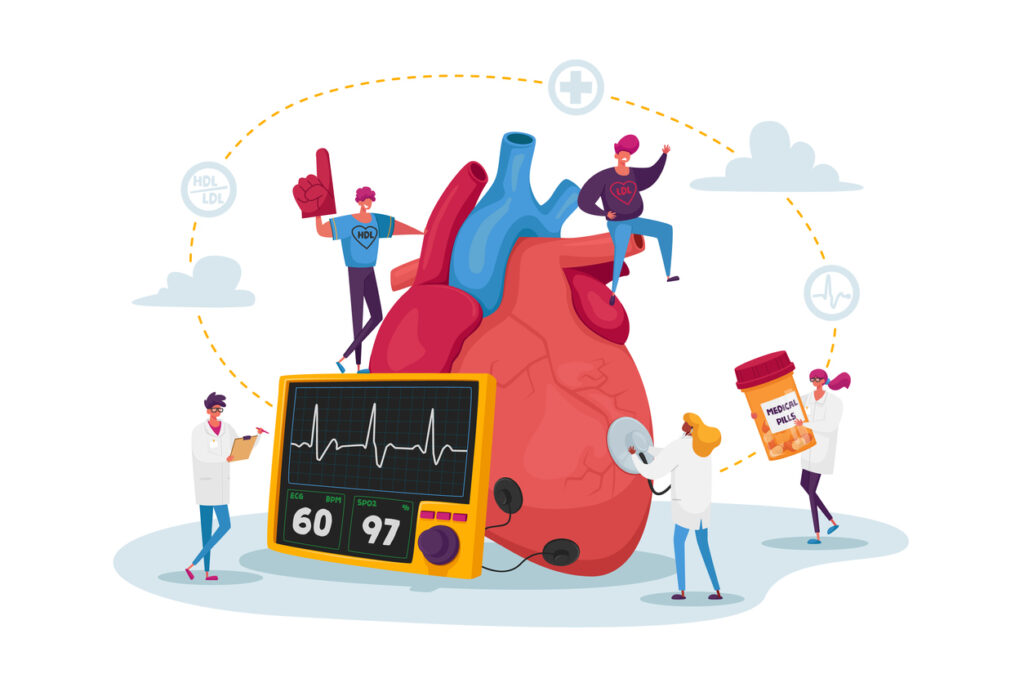Ketogenic Diet and Heart disease

Often, the ketogenic diet is cited as a cause of increased serum cholesterol levels. Meanwhile, there is no strong, unequivocal evidence to suggest that there is a risk of an increase in serum cholesterol due to an increased supply of cholesterol from food. As a result of regulatory mechanisms, the body is able to take in as much cholesterol as it needs. In fact, even the consumption of 25 eggs (which are known to be rich in cholesterol) per day for 15 years did not result in an abnormal lipid profile in an 88-year-old patient [2].
Inflammation is involved in the development of cardiovascular diseases, initiating the atherosclerotic process. Excessive inflammation causes endothelial dysfunction and contributes to the increased risk of cardiovascular disease. One of the main causes of inflammation is the aging process itself. We cannot control aging but we certainly can control our environment and the choice of what to eat is an important component of good cardiovascular health.
The ketogenic diet has been proven to have anti-inflammatory effects, which has beneficial effects on the prevention or treatment of cardiovascular diseases.

Source of image: Dyńka et al., 2023
The ketogenic diet initiates the increased production of ketone bodies. The main ketone body, β-hydroxybutyrate (BHB), exhibits a number of anti-inflammatory properties, including mimicking the fasting state. It has multifaceted effects, including influencing gene expression, reducing inflammation and improving mitochondrial function.
Β-hydroxybutyrate also seems to have the potential to affect myocardial metabolism and function. Of all the organs, the heart has the highest energy requirement. We can synthesize BHB through fasting, supplementing Medium-chain fatty acids (MCTs) or even taking exogenous ketones.
MCTs do not require pancreatic enzymes for digestion and travel via the portal vein to the liver where it can be rapidly converted to ketones. The enrichment of the ketogenic diet with MCT fats is justified as it also increases mitochondrial biogenesis which is great for the heart. Its advised to use this source of energy while restricting carbs:
Source of image: Dyńka et al., 2023
It is well known that simple sugars are one of the key pro-inflammatory dietary factors. The ketogenic diet involves limiting the total supply of carbohydrates, simple sugars are eliminated to minimize increases in serum glucose and insulin, which inhibit the achievement of the state of ketosis.
One way to maximize the effects of a ketogenic diet is by choosing foods that are rich in omega-3, a type of fatty acid with anti-inflammatory effects. A diet that is rich in omega-3 may reduce the risk of various phenotypes of atherosclerosis and cardiovascular diseases, by lowering triglyceride levels, reducing the growth rate of plaques that clog blood vessels, lowering blood pressure, and helping to reduce inflammation. You can find omega-3s in mackerel, salmon, seabass, oysters, sardines, shrimp, seaweed, chia seeds, hempseed, and flaxseed.
Bibliography:
[1] O’Brien MJ, Karam SL, Wallia A, et al. Association of Second-line Antidiabetic Medications With Cardiovascular Events Among Insured Adults With Type 2 Diabetes. JAMA Netw Open. 2018;1(8):e186125. doi:10.1001/jamanetworkopen.2018.6125
[2] Kern F Jr. Normal plasma cholesterol in an 88-year-old man who eats 25 eggs a day. Mechanisms of adaptation. N Engl J Med. 1991 Mar 28;324(13):896-9. doi: 10.1056/NEJM199103283241306. PMID: 1953841.
[3] Dyńka D, Kowalcze K, Charuta A, Paziewska A. The Ketogenic Diet and Cardiovascular Diseases. Nutrients. 2023 Jul 28;15(15):3368. doi: 10.3390/nu15153368. PMID: 37571305; PMCID: PMC10421332.


